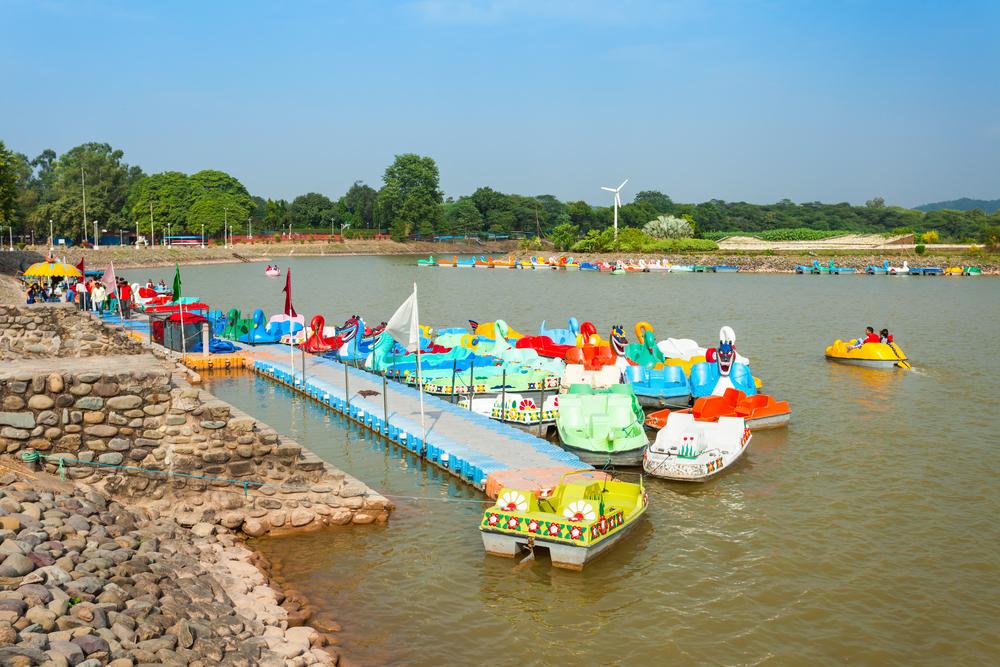

Sukhna Lake, a beautiful reservoir at the foothills of the Himalayas, is situated in Chandigarh, Punjab, India. This man-made lake spans approximately 3 square kilometers and was created in 1958 by damming the Sukhna Choe stream, a seasonal stream descending from the Shivalik hills. Conceived by Le Corbusier, the chief architect of Chandigarh, Sukhna Lake complements the concept of integrating natural elements with urban planning.
In its early days, soon after its inception, Sukhna Lake quickly became a favorite for local residents for morning and evening walks. Considering its serene environment and picturesque views, it wasn't long before it started attracting tourists from neighboring states and beyond.
Over the years, the Chandigarh Administration has made concerted efforts to develop the Sukhna Lake area into a major tourist attraction. The addition of amenities such as a clubhouse, the Sukhna Lake Club, boating facilities, and a children's park have made the site more visitor-friendly. A walking trail, jogging track, and the famous Sukhna promenade provide a perfect blend of leisure and activity.
Sukhna Lake's approach to tourism has been environmentally conscious, which resonates well with the latest sustainable tourism trends. It offers eco-friendly pedal boats and solar-powered and battery-operated vehicles to minimize pollution. Engaging activities like rowing, yachting, and even bird watching (considering it's a sanctuary for many migratory birds) have emerged as popular attractions for tourists.
Moreover, Sukhna Lake has been a hub for cultural events and festivals that draw tourists nationally and internationally. The Mango Festival, during which different varieties of mangoes are displayed and sold, is one such event that showcases the local produce and culture.
Despite its popularity, Sukhna Lake has faced challenges such as shrinking water levels and silting. The government and environmentalists have taken steps like desilting, rainwater harvesting, and banning construction in the catchment areas to preserve this vital reservoir.
Evolving in line with the latest tourism trends, Sukhna Lake keeps introducing new activities to enhance the tourist experience. From water sports festivals to art installations and open-air exhibitions, the lake remains an essential part of Chandigarh's tourism scene. Concepts like wellness tourism are being integrated, with yoga sessions and meditation activities being held by the tranquil waters, inviting a new wave of tourism focused on health and spirituality.
Today, Sukhna Lake stands not only as a popular tourist destination but as a symbol of Chandigarh – a city where the modern coexists with nature. It continues to appeal to adventurers, nature lovers, and those seeking a peaceful retreat alike, promising growth and vigor in its tourism sector for years to come.